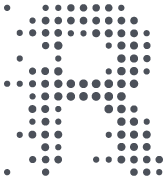
Last week was the anniversary of the death of my mother, Gill, after a short battle with pancreatic cancer. Her illness came during a time of professional change for me. I was managing a team across two continents with time zones that didn’t overlap. I was running two teams with completely non-overlapping responsibilities: one was a program management team; another, network operations. I was trying to steer the network operations team in a new direction.
I was in “high throughput” mode. I knew what delivery milestones were coming up in all our projects. I knew who was in our hiring pipeline. I could explain our budget from memory. I knew what our risks were and how I planned to manage through them. I was putting together some strategic initiatives for the coming 6 months.
I was on my game. Life was good.
Then New Year’s Eve, I got a call from my parents. Mum had been diagnosed with cancer. Information was sparse but over the coming weeks we learned it was Pancreatic cancer and it had already spread.
This was a situation that put work / life balance into sharp relief. For context, I live in Seattle, my parents in the UK. Options:
- Choose work. Work is necessary to pay the bills and provide for my family. Increase the frequency of calls and Skypes with home, send flowers and gifts.
- Choose life. Quit my job and go be with my family through a difficult time. Figure work out later.
Or, of course, find a balance. I was used to working remotely from my team in Taiwan, and we made that work. Since my parents were in the UK, my timezone would fall exactly halfway between Seattle and Taipei. Temporarily relocating to the UK meant I would be able to overlap timezones by working early mornings and evenings, conveniently leaving the middle of the day free for doctor appointments and looking after my parents. My Seattle team would get to experience work as my Taipei team did.
The question was, could I make this balance work and continue to be effective leading my team? Practically speaking, I would be removed from the day to day decisions the team would make. I wouldn’t be there to help resolve the little drive-by questions. I wouldn’t be able to spot problems that other people hadn’t seen or weren’t talking about.
On the flip side, I wouldn’t be distracted by everything that was going on day-to-day and I would have to put structure and process in place to make sure that I stayed connected and knew what I needed to know.
Most important, I needed to let go of the idea that the only reason the team worked was because of me.
Late January, I made the first of three extended trips back to the UK to be with my family, having put the following in place to help make it work:
- Clearly defined which of my leads was responsible for which projects / areas, and held them accountable for that
- Outlined what decisions each lead could take without needing to discuss with me
- Designated primary and secondary leads for emergency situations – we ran network operations so I needed to know who would take point
- Set a cadence for check-in meetings for different projects / initiatives so people knew when to expect me to check in
- Set expectations for email response times
- Set defined office hours I would be available to ask questions / give direction every day
- Communicated to our peer teams who held responsibility and accountability
And of course, asked and received the support of my manager for all of the above.
I can never run an A/B test to know for sure whether we ended up better or worse off as a team because I worked remotely for much of the next 6 months. But I can say that on balance, things seemed to run just fine without me being there day to day. Each of my managers stepped up and led their teams. We met our commitments. None of our customers complained. In fact, I wonder if anyone noticed I wasn’t there!
It’s terribly easy to convince yourself that you’re important or critical to the success of your team or company. In reality, that’s not true for most managers and most jobs. I’m not suggesting that management has no value, or that managers should go sit on the beach while their team does work. It’s about finding the level at which you actually add value to the team, and the input, support and drive you provide that are actually valuable.
My Mum’s battle didn’t last very long. Pancreatic cancer is aggressive and often found too late. I had a choice about whether I was going to be with my Mum through the journey and I chose to tip the balance toward “life” rather than “work”. We face that choice every day. Do I go to dinner with friends or finish this report? Do I turn down a meeting to make a dance recital? Do I book a holiday this year or wait until next year? I’ve often chosen “work” on the work / life balance scale over the years. In this case, though, circumstances forced my hand and I had to let go of some of my attachment to work and rely on my team. In return, they gave my life a gift that remains priceless.
日期: May 2013
收件者: CS-Operations, CS-PMO
副本: Alexis Jones, Ford Davidson
主旨: Re: Change in James P Working Hours 1/21 to 2/15
Team
As some of you may have heard, my Mum passed away in the early hours of Monday morning.
The cancer journey is one that’s typically filled with ups and downs. A week before she died my Mum had received extremely encouraging scan results showing that her tumors had shrunk for the second time and she was healthier than I’d seen her for a good while. But within days she became quite poorly and by last Friday she was admitted to hospital at her own request. I was able to get to her bedside in the UK by Saturday afternoon and she was well enough that we were able to exchange some final thoughts. I spent her last hours at her bedside with my siblings and Dad. A few hours before she died we threw a small party in her room in her honor with bread and cheese, gin and chocolates. We drank toasts to her life and her accomplishments and contributions. I watched the beautifully engineered human body go through the process of shutting down piece by piece, system by system to conserve life until only the most fundamental function – breathing – remained and then quietly flickered off.
I’m grateful for a great many things. Pancreatic cancer is an aggressive beast of a cancer and my Mum beat her doctors estimate that she’d only last until March or April. I’m grateful for the time I’ve had with Mum over the last few months. I had the opportunity to say goodbye, and to strengthen my relationship with my Mum while she was still around, and not everyone gets that when they lose a loved one.
As I’ve pointed out before, we’re often asked to separate our lives as “employees” and our lives as “people” who have children, sick relatives, hobbies, friends and a great many other things that make life interesting. But in reality you can’t just hire “employees”, you hire “people”. Your time at HTC is a short part of your overall life journey, and relatively speaking a much less important than your health and your loved ones. So I’ve been sharing part of my life journey as a way of reminding you that’s it’s OK and important to take care of your whole life, and not just your work life. I want each of you to be able to live fuller lives as a result of your time on our team, whether you learned a new technology, or picked up a new skill, took on a challenge you weren’t sure you were up to, met people you create a world changing startup with or just plain enjoyed your job and went home happy every night. It’s different for all of us, but important that it’s a positive experience for each of us.
I’m grateful for the support I’ve had from every single one of you these last few months. You have accomplished amazing work so far this year, from shipping services for M7, to 10s of deployments, to building new data centers, to planning our next releases. You’ve enabled me to work remotely with confidence that our services will ship and stay available to our customers, and that when we have issues they’ll get resolved rapidly and professionally. Thank you all. I hope that I can be there for each of you as well when you need me.
My priority for the immediate future is to help my Dad adjust to life without the woman he’s been with for over 50 years. If you’ve ever observed that I’m pragmatic, that attribute comes from my Dad! He’s holding up pretty well at the moment while there are lots of practical things to do, and lots of family members around. Over the next couple of weeks there will be fewer practical things to do and fewer people about so I plan to be here to help steer him through that change. I currently plan to return to the US in mid-June. I’ll plan a trip to Taipei in the Summer. Apologies to the folks in Taipei who had been looking forward to seeing me next week.
You’ll see me on and off e-mail over the next couple of weeks. If you need something urgently that only I can resolve, or that gets resolved more quickly with me involved my UK and US cell numbers are both active.
Thank you all again for your support these last few months. It’s been life changing and positive for me in a way that I can’t adequately explain.
James




